この記事は3年以上前に書かれた記事で内容が古い可能性があります
AndroidStudioインストールからadbコマンドが使えるようになるまで
2018-05-20
初めてのAndroid買って真っ先にやったこと。Xcode入れる前にAndroidStudio入れちゃう。
インストール
https://developer.android.com/studio/よりAndroidStudioをインストールする。
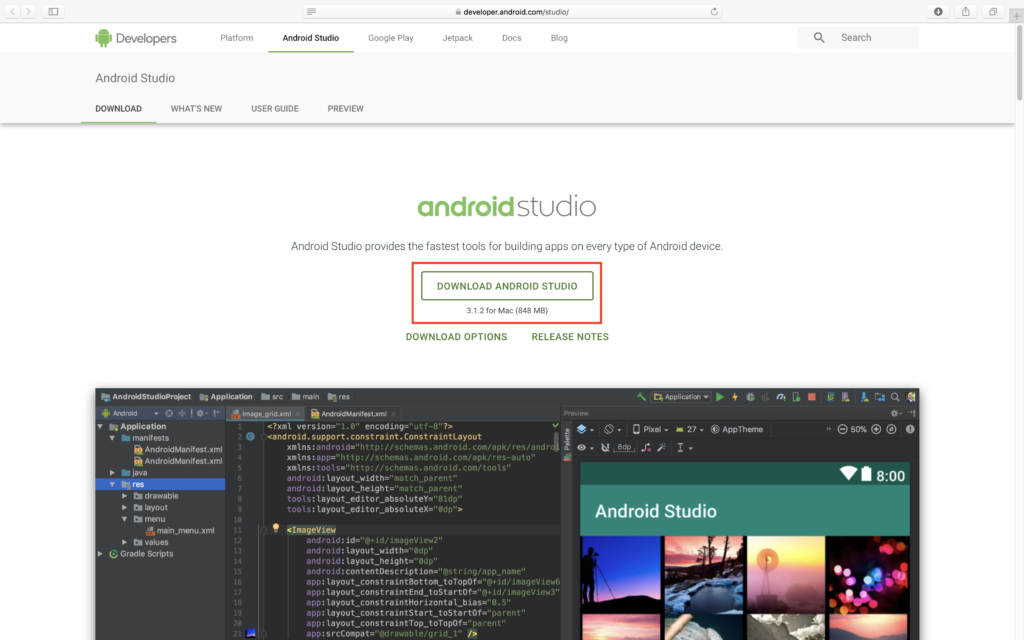
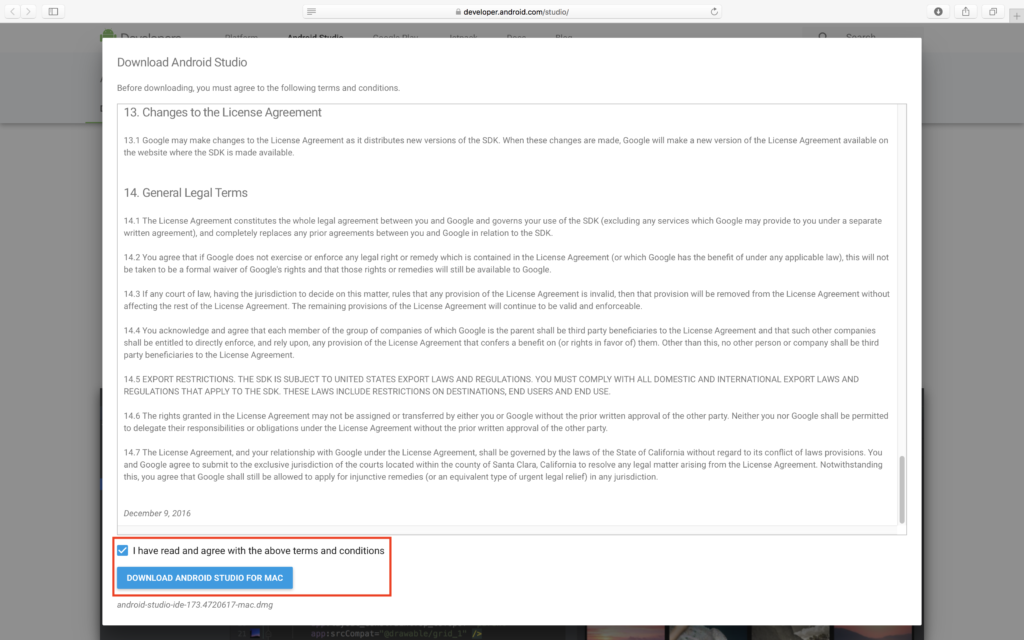
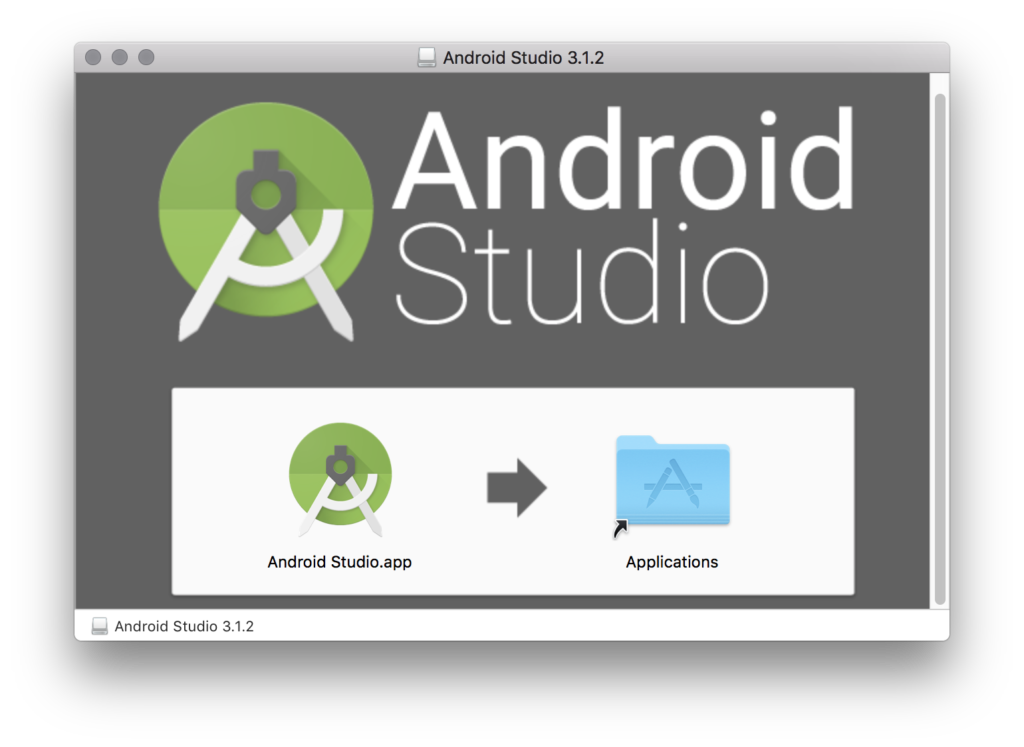
セットアップ
Android Studioがインストールできたら起動して、セットアップ。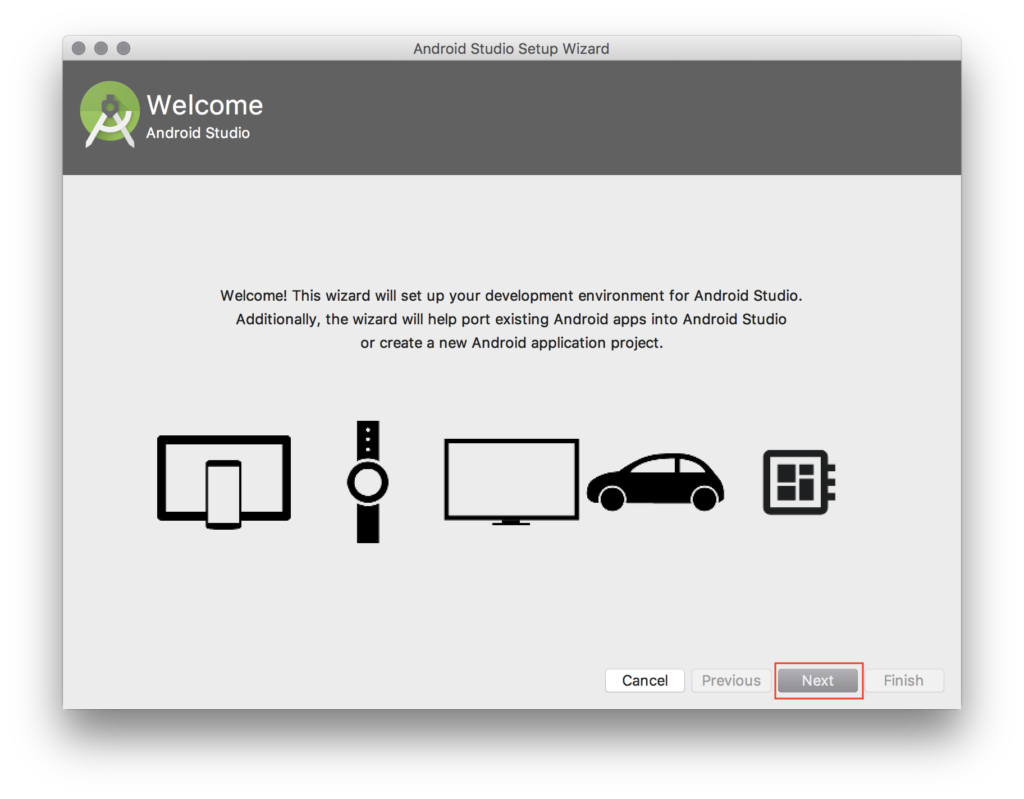
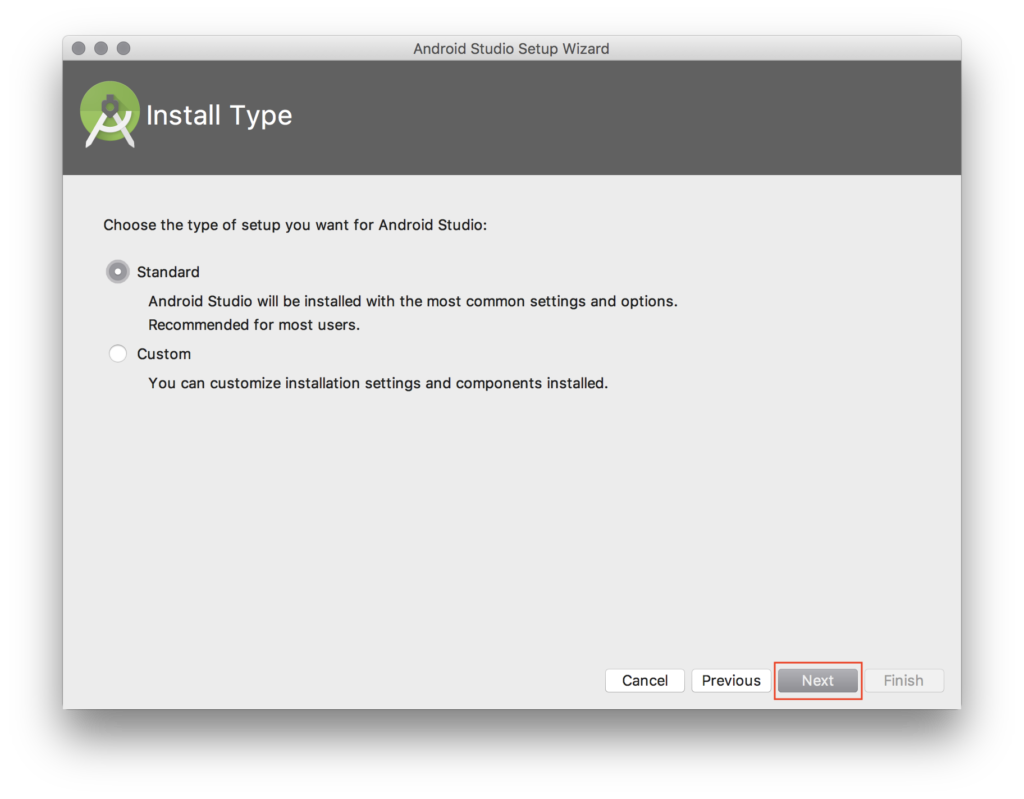
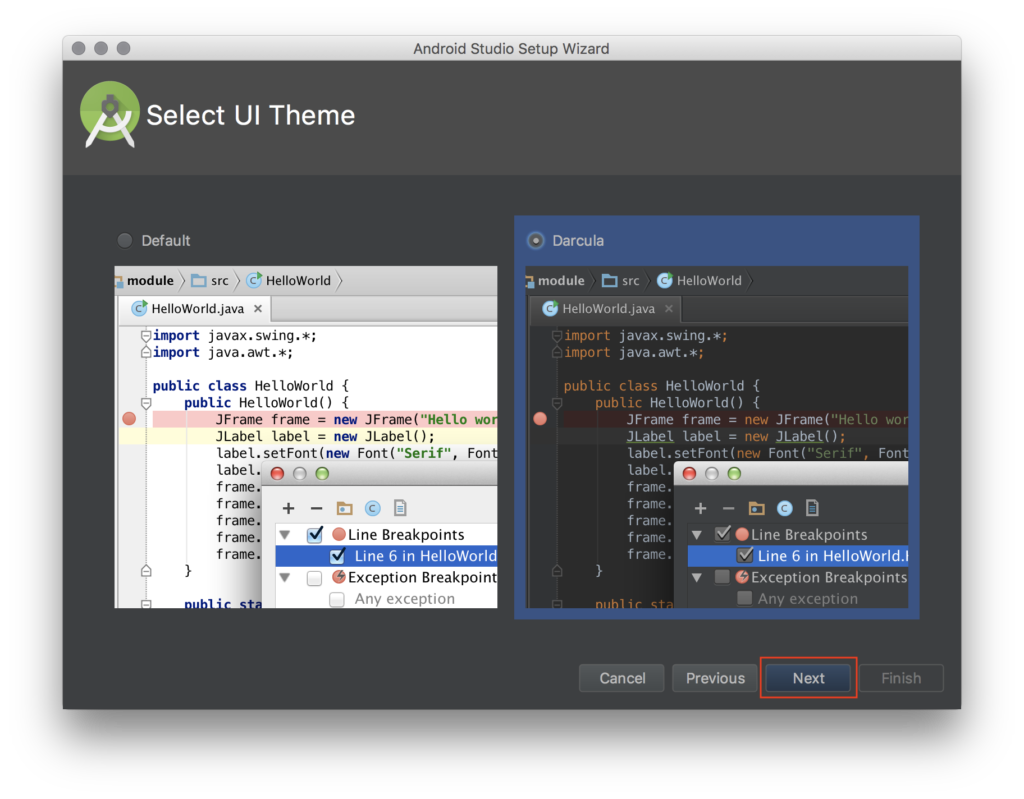
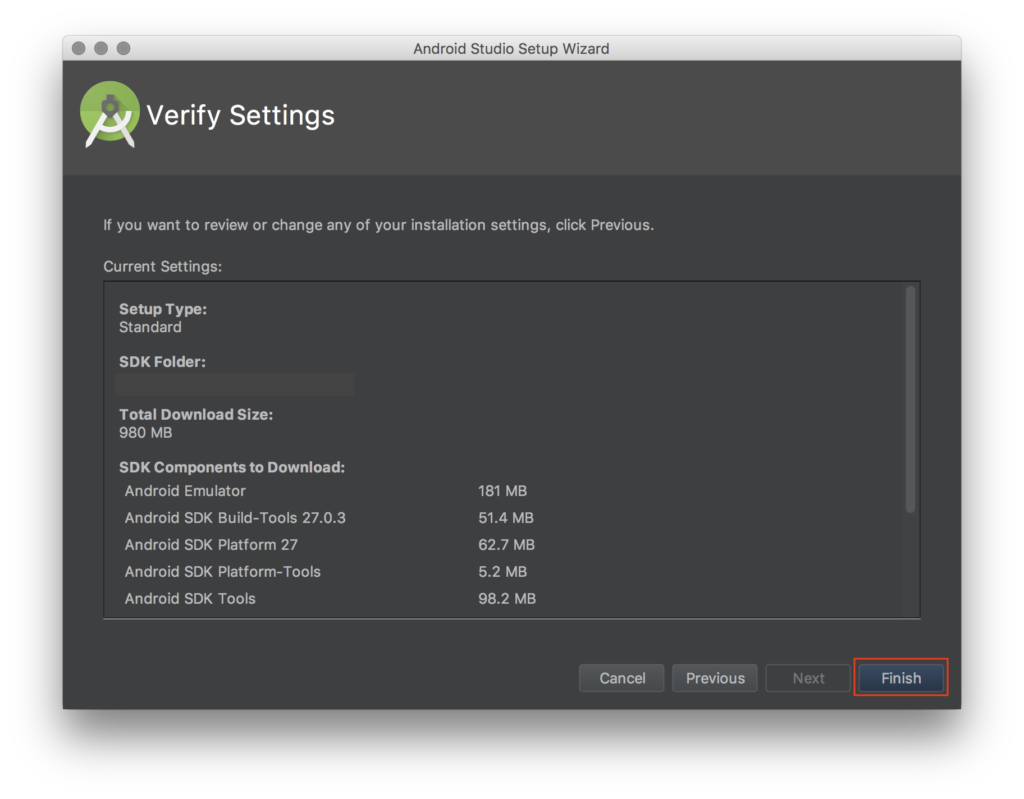
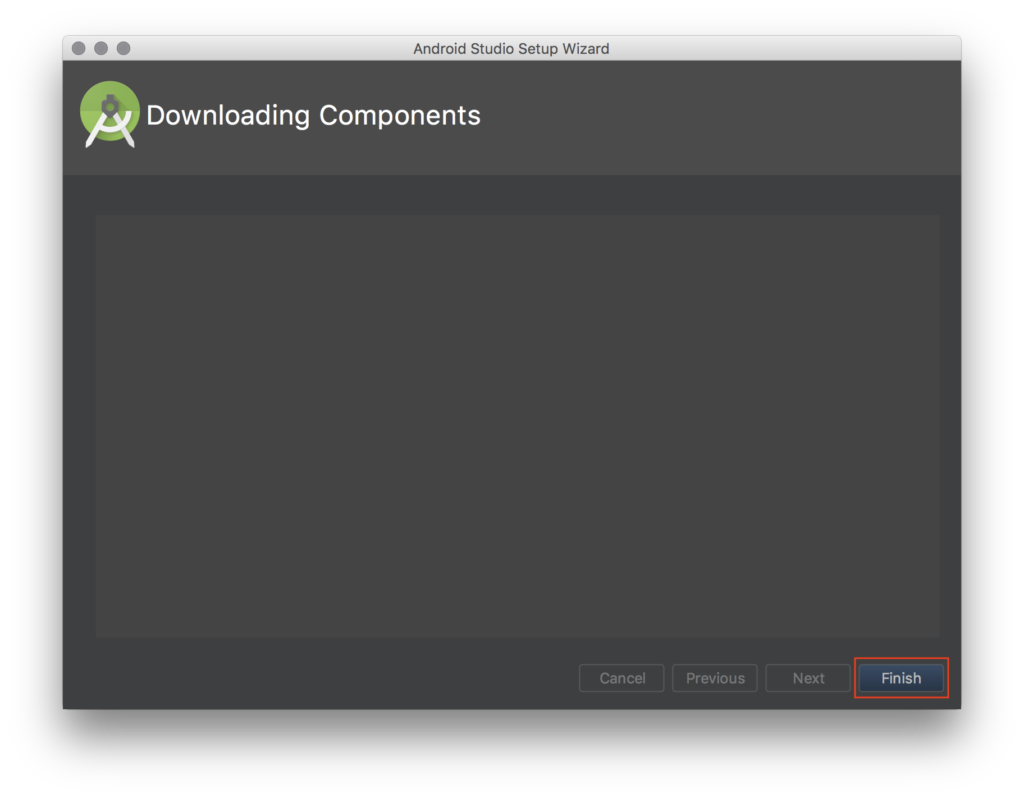
新しいプロジェクトを作成する
「Start a new Android Studio project」をクリックし、粛々と進める。
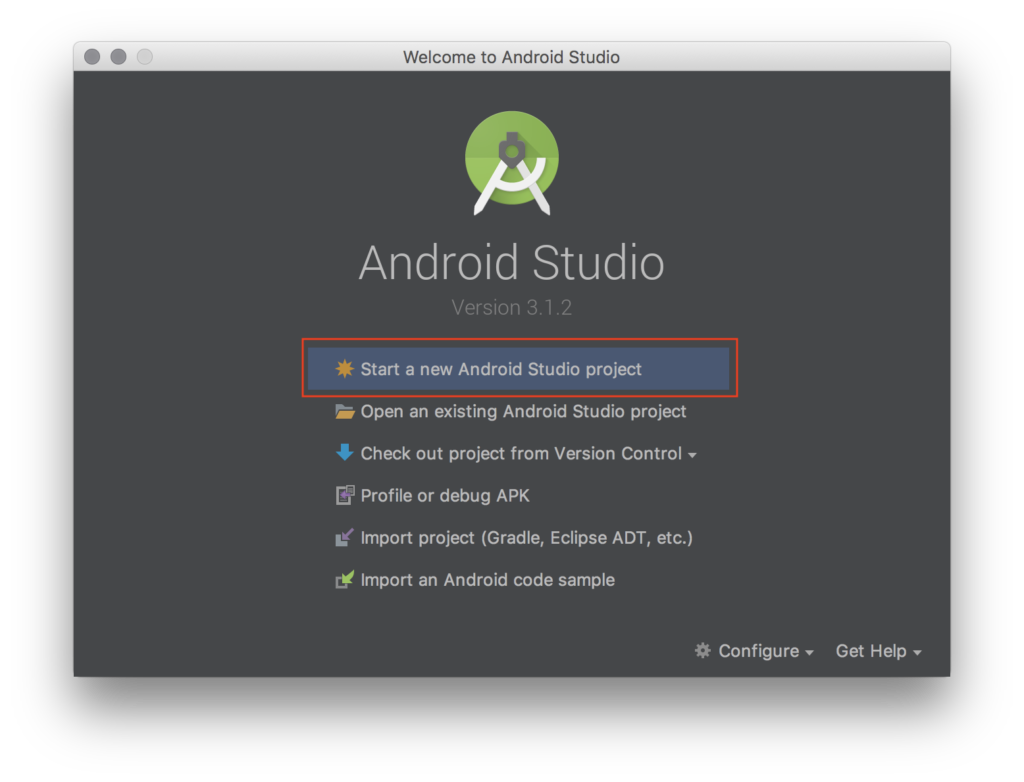
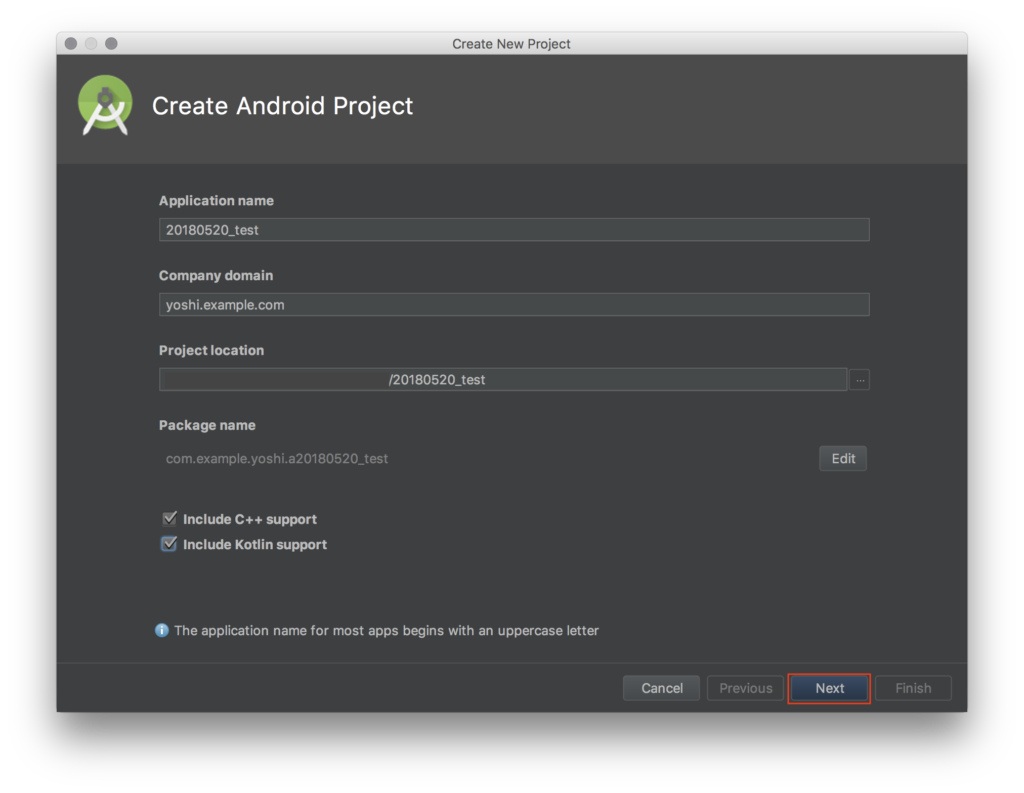
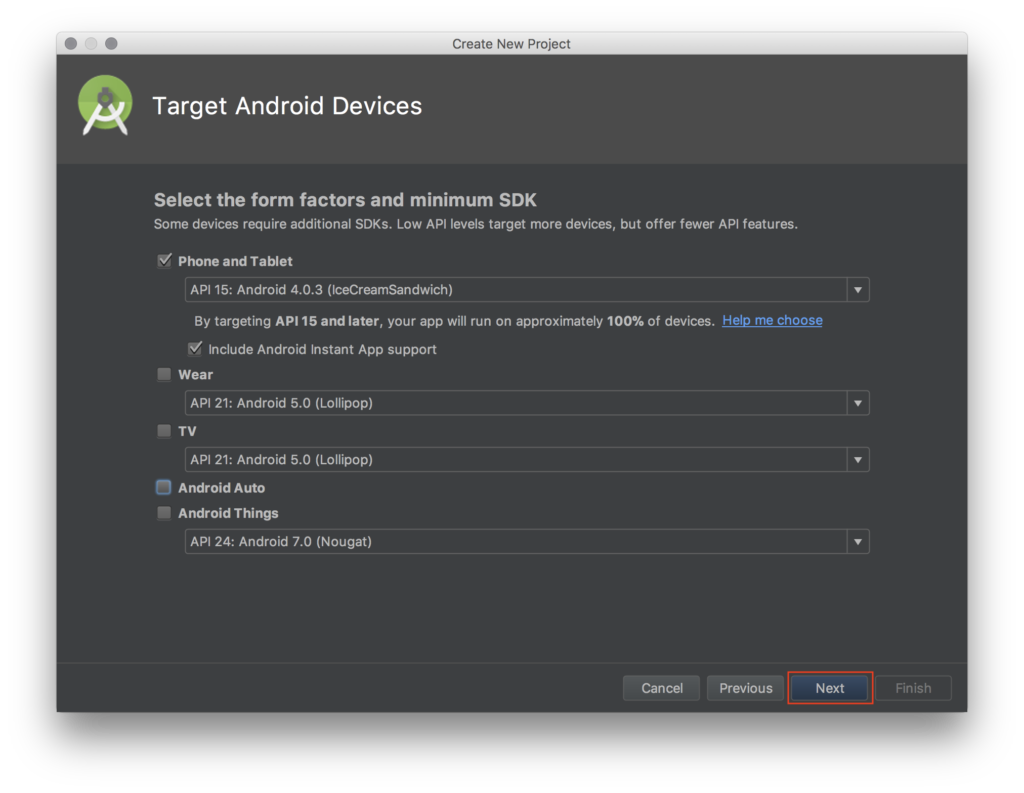
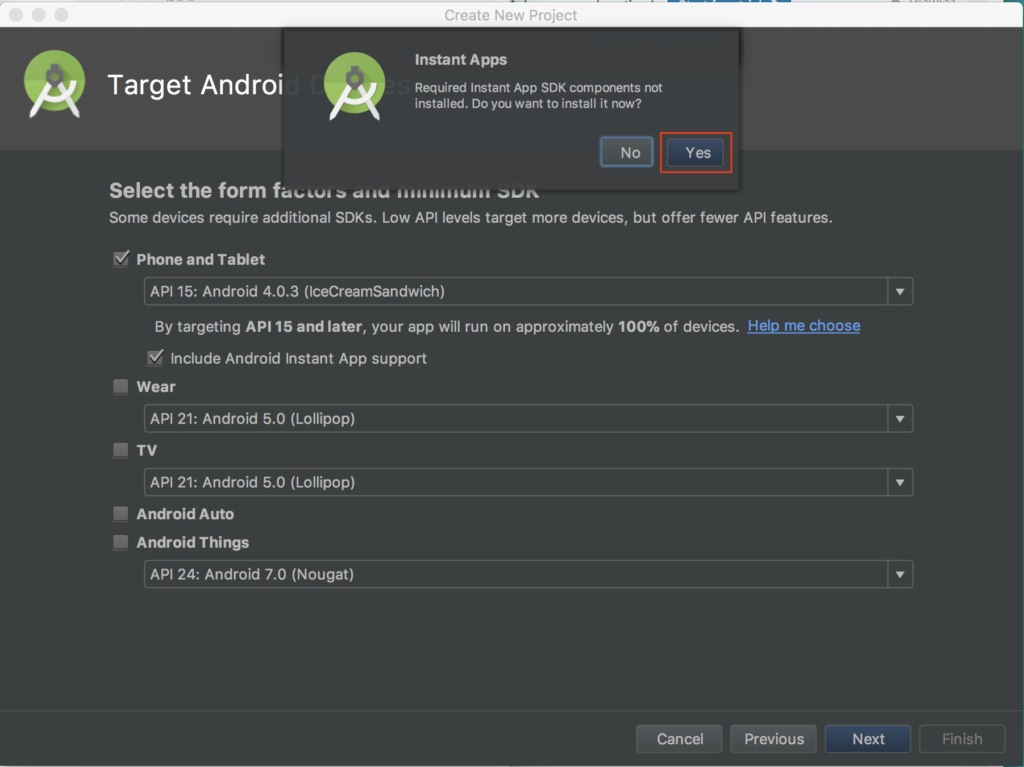
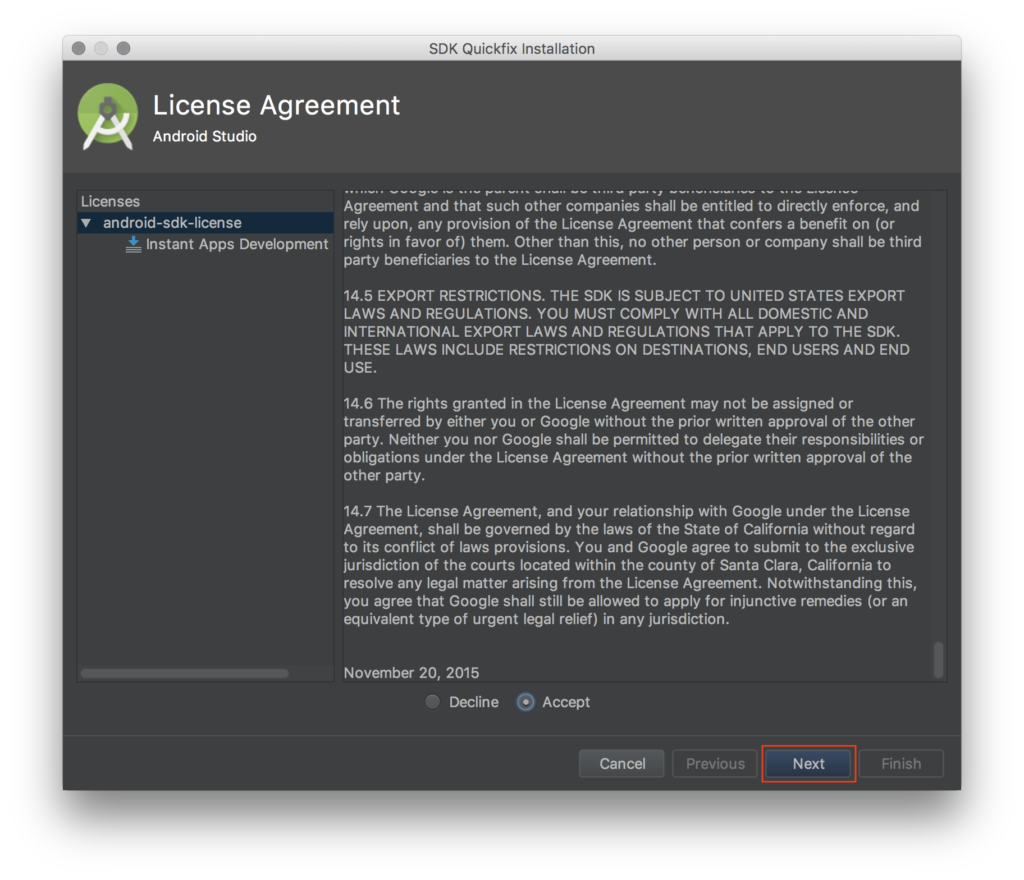
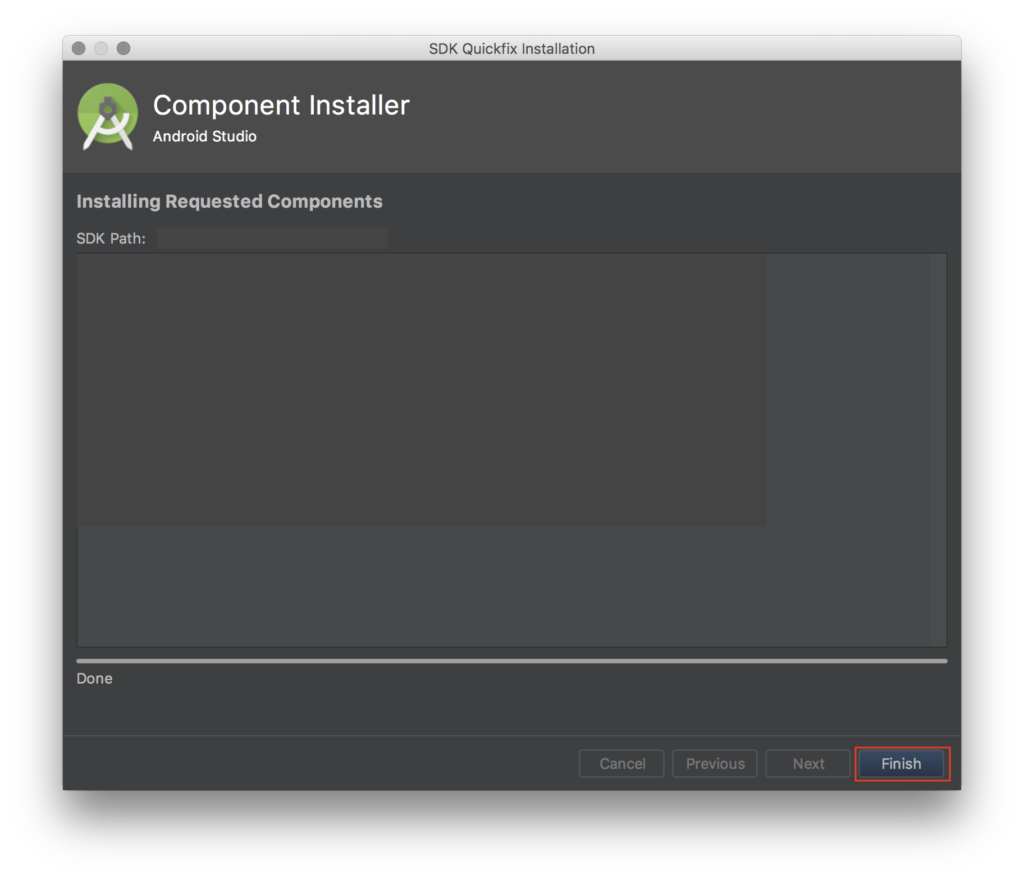
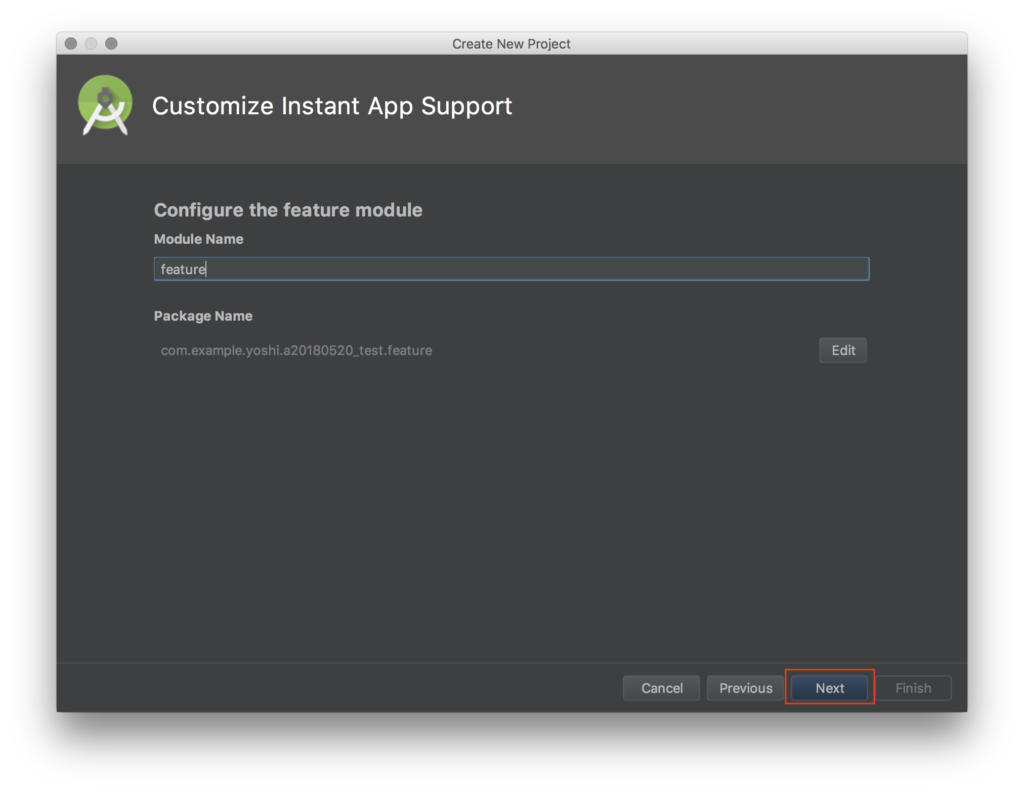
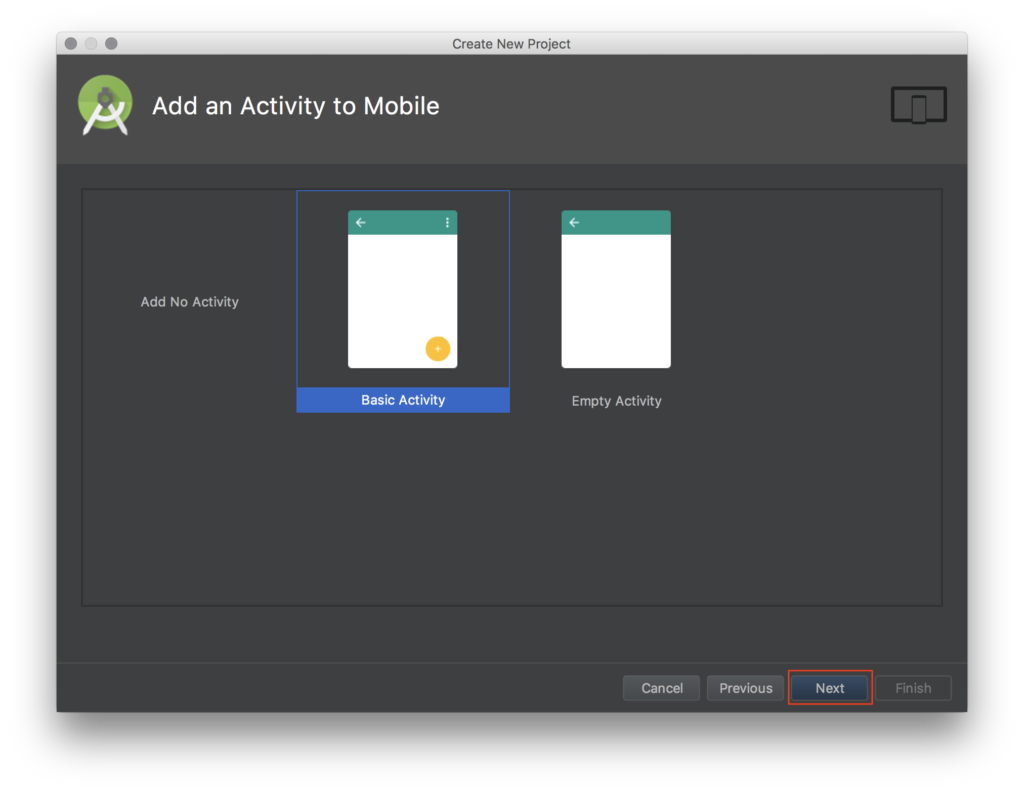
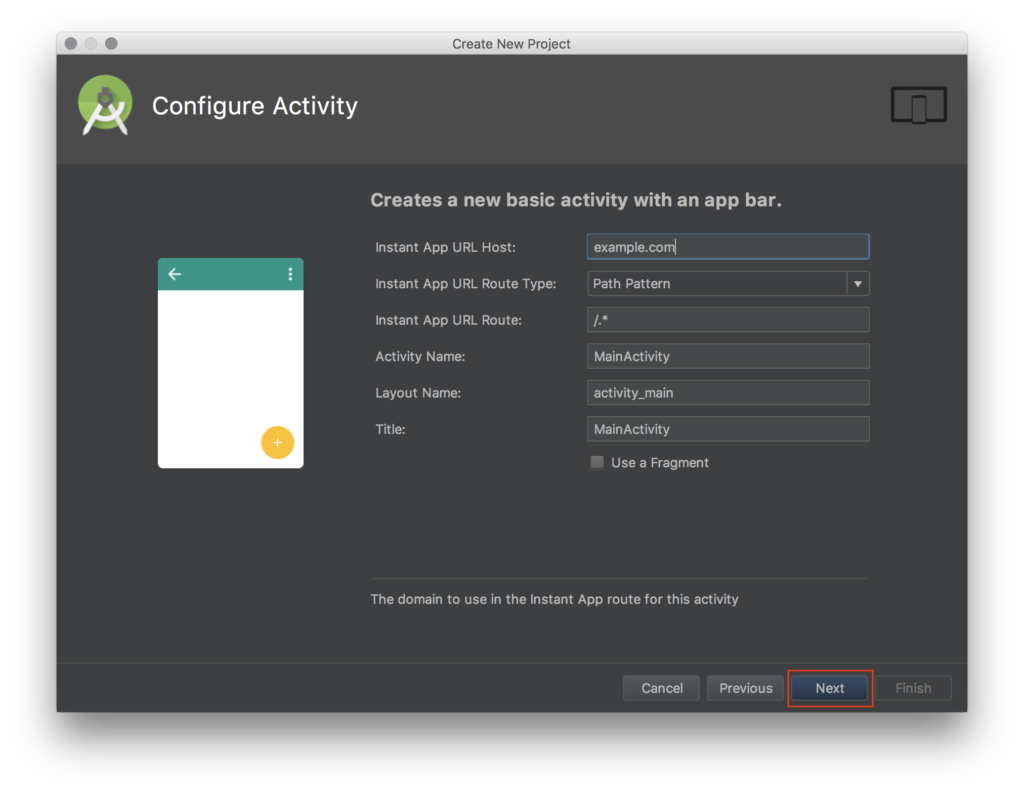
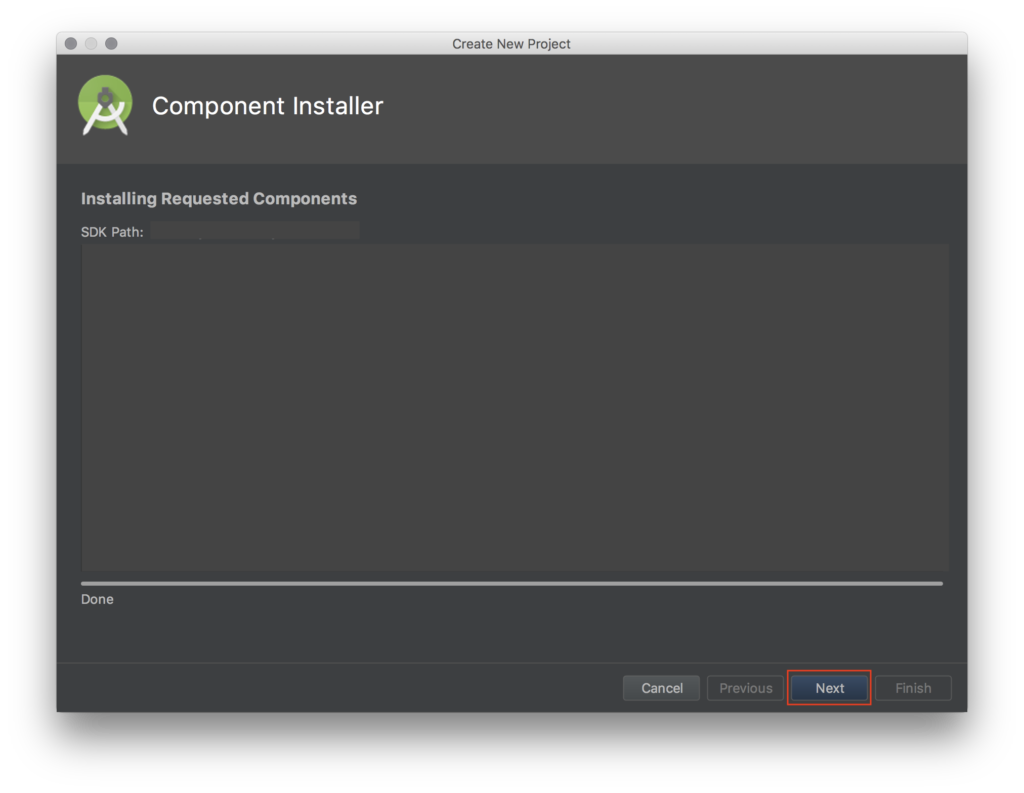
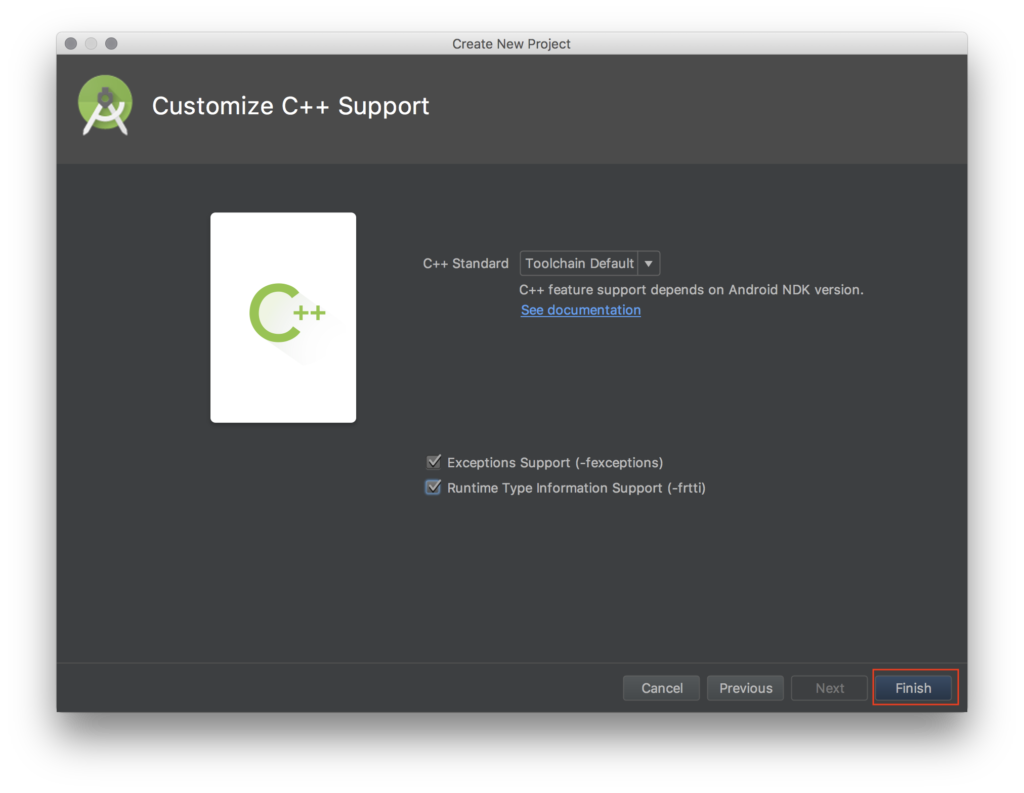
色々足りないようなので、エラーメッセージに従って、色々インストールする。
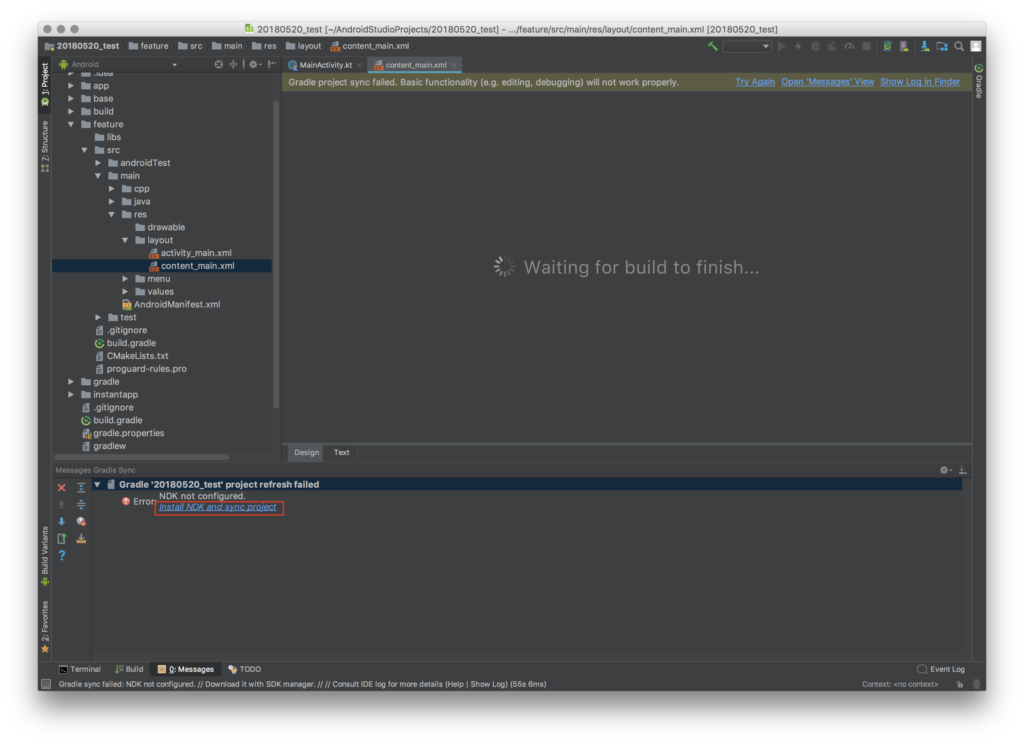
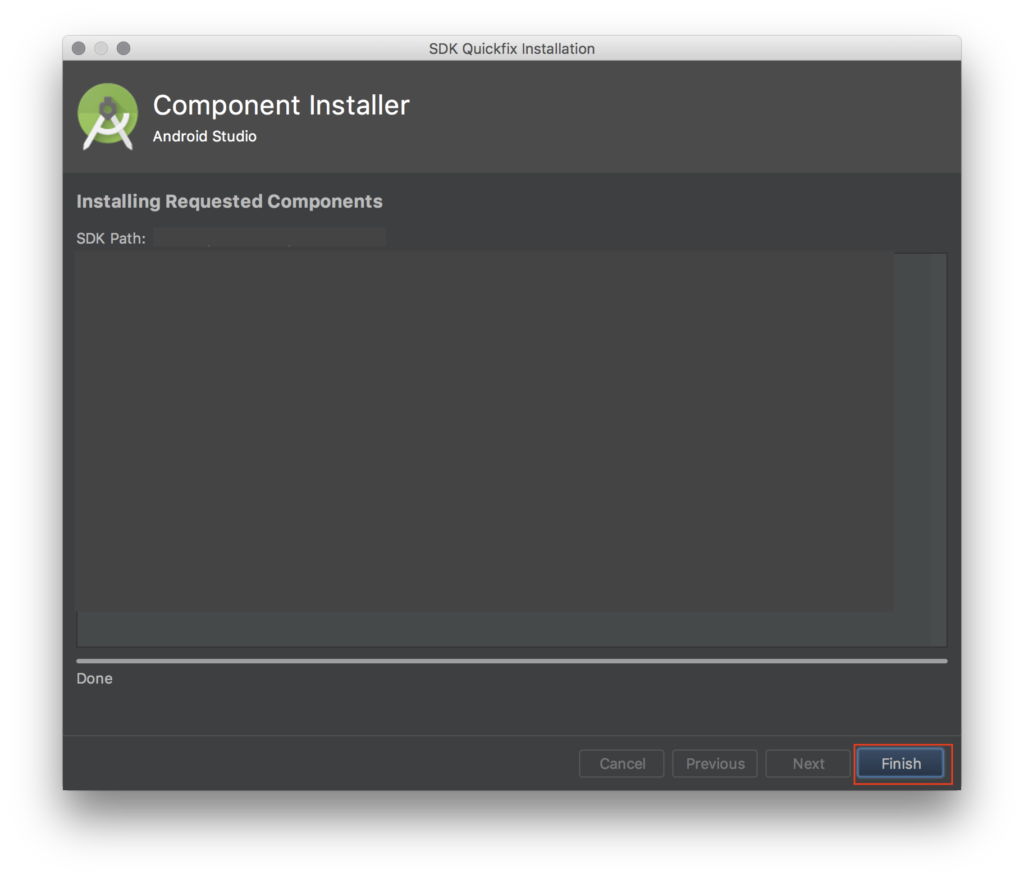
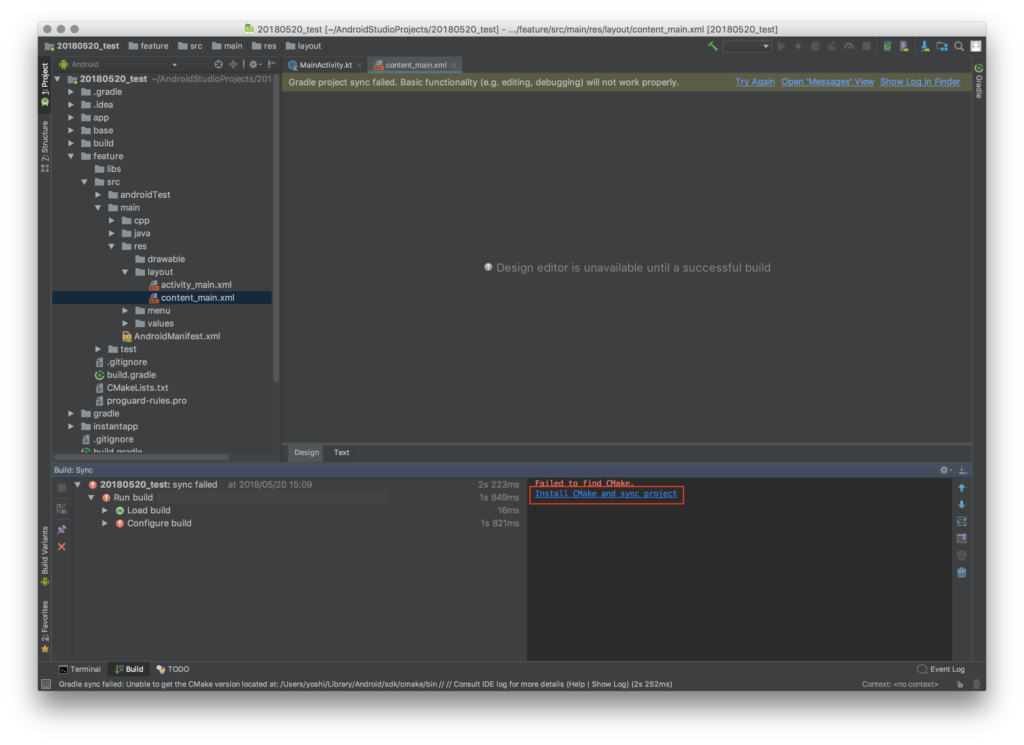
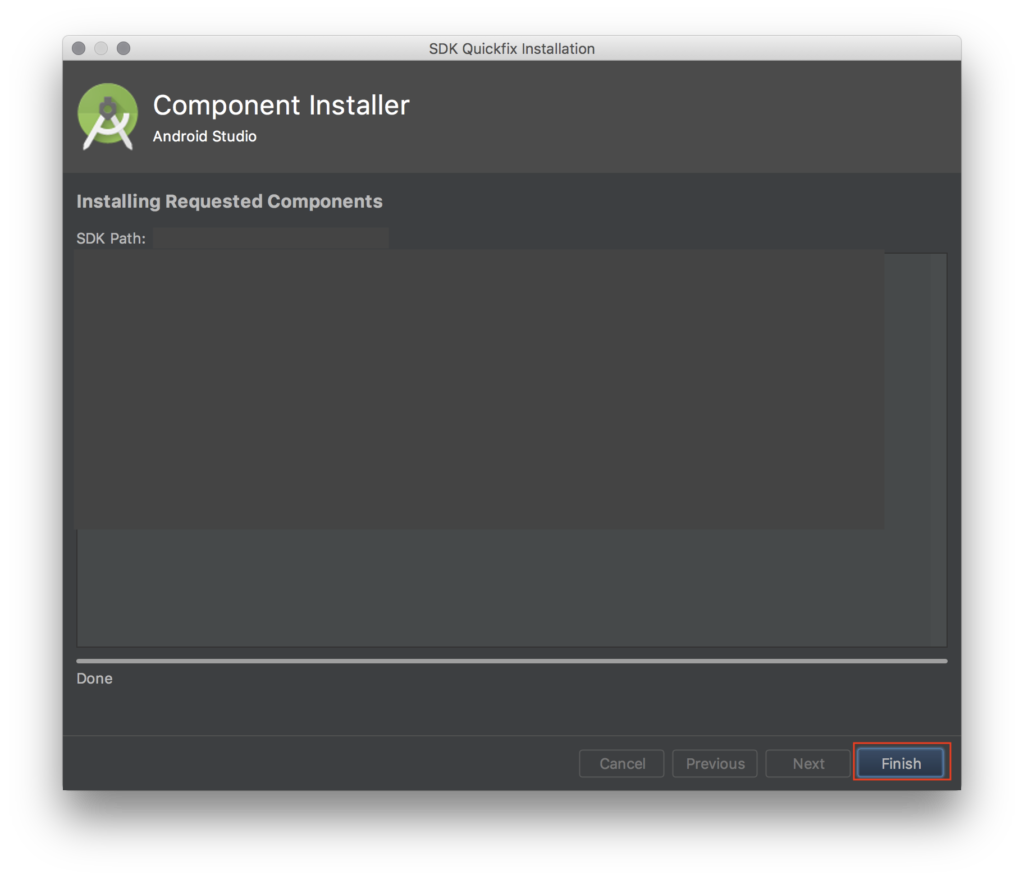
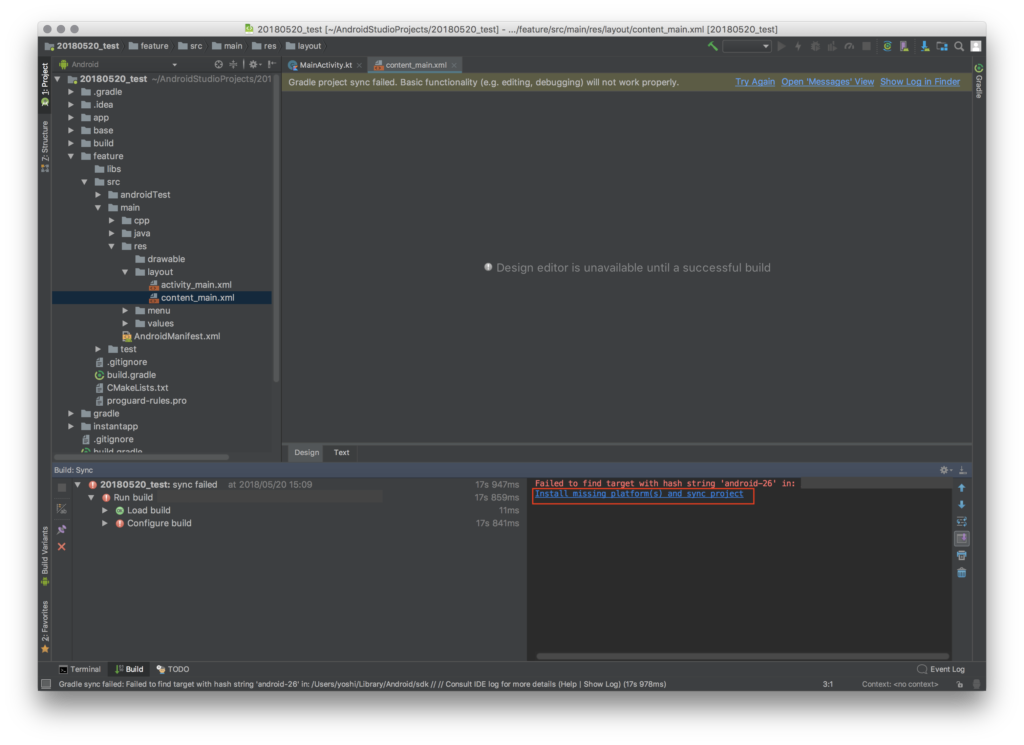
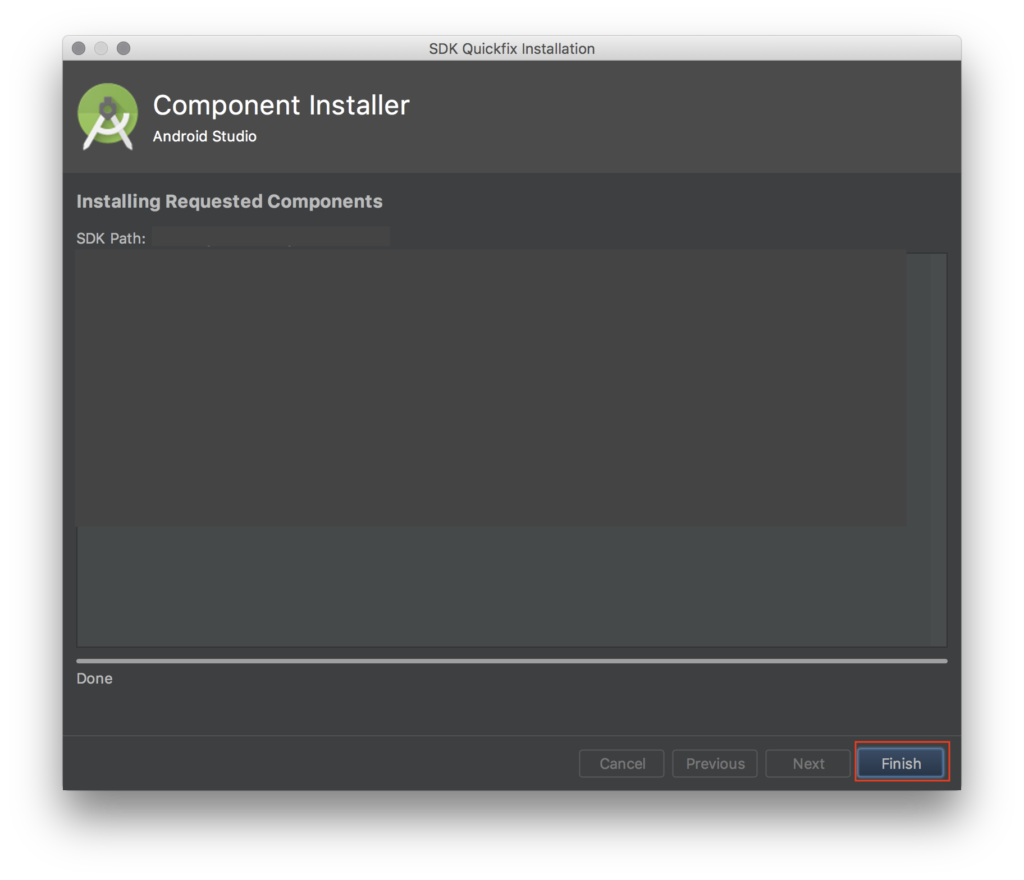
できた
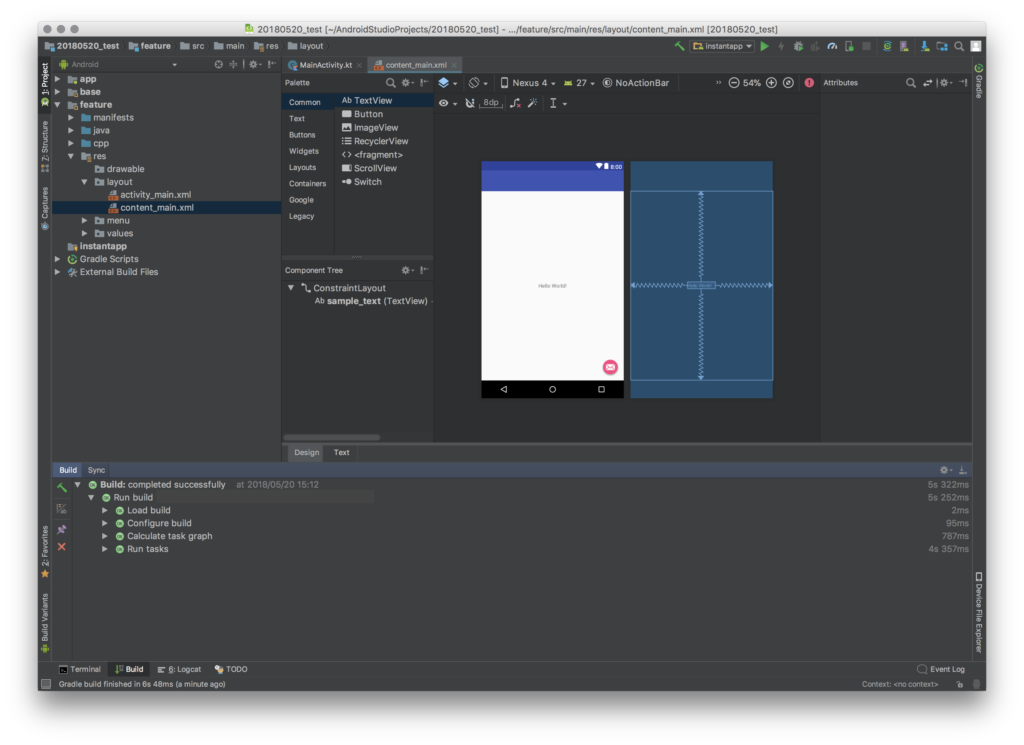
ADBコマンドを使えるようにする
このままでは使えない状態
[yoshi@18-05-20T15:14:16] ~ % adb zsh: command not found: adb [yoshi@18-05-20T15:14:22] ~ %
File > Other Settings > Default Project Structure よりパスを確認する
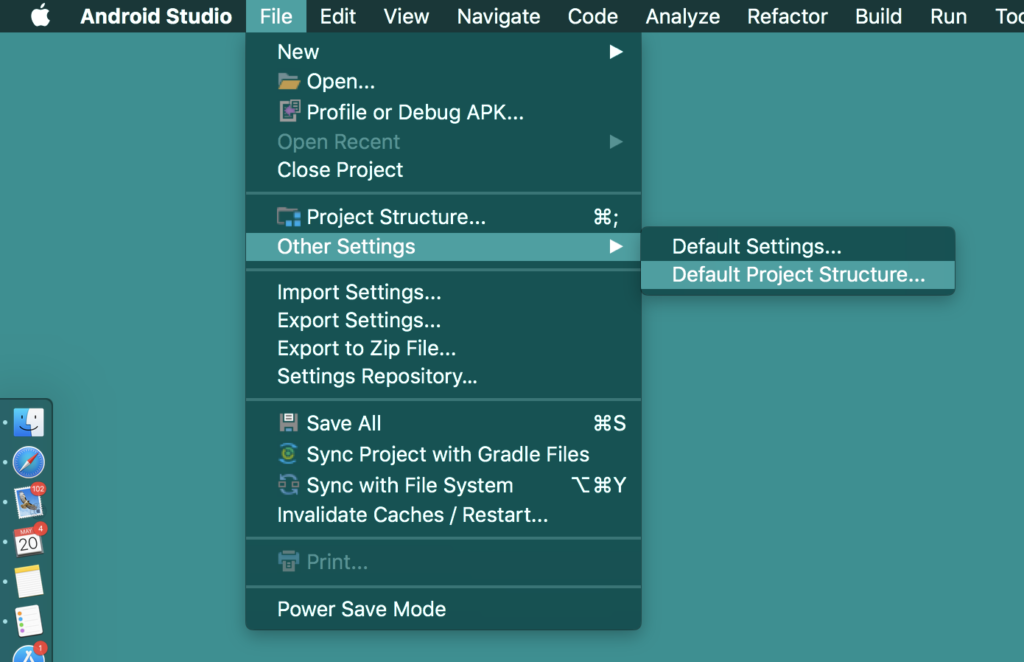
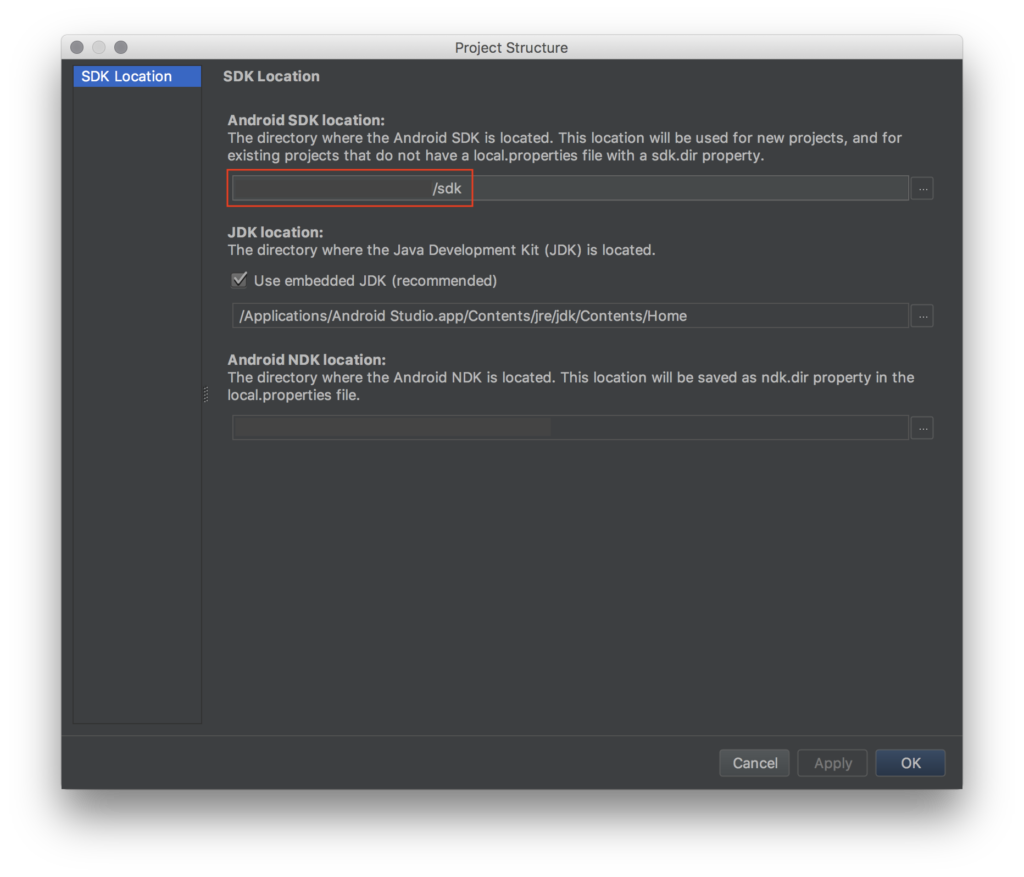
~/.bash_profileに「調べたパス+/platform-tools」を記載する(ファイルが無ければ作成する)
[yoshi@18-05-20T15:17:17] ~ % vim ~/.bash_profile [yoshi@18-05-20T15:18:22] ~ % cat ~/.bash_profile export PATH=$PATH:/hogehoge/sdk/platform-tools [yoshi@18-05-20T15:18:27] ~
~/.bash_profileの読み込み
[yoshi@18-05-20T15:18:27] ~ % source ~/.bash_profile [yoshi@18-05-20T15:18:36] ~ %
これで使えるようになる
[yoshi@18-05-20T15:18:41] ~
% adb
Android Debug Bridge version 1.0.39
Version 0.0.1-4500957
Installed as /hogehoge/sdk/platform-tools/adb
global options:
-a listen on all network interfaces, not just localhost
-d use USB device (error if multiple devices connected)
-e use TCP/IP device (error if multiple TCP/IP devices available)
-s SERIAL use device with given serial (overrides $ANDROID_SERIAL)
-t ID use device with given transport id
-H name of adb server host [default=localhost]
-P port of adb server [default=5037]
-L SOCKET listen on given socket for adb server [default=tcp:localhost:5037]
general commands:
devices [-l] list connected devices (-l for long output)
help show this help message
version show version num
networking:
connect HOST[:PORT] connect to a device via TCP/IP [default port=5555]
disconnect [HOST[:PORT]]
disconnect from given TCP/IP device [default port=5555], or all
forward --list list all forward socket connections
forward [--no-rebind] LOCAL REMOTE
forward socket connection using:
tcp:<port> (<local> may be "tcp:0" to pick any open port)
localabstract:<unix domain socket name>
localreserved:<unix domain socket name>
localfilesystem:<unix domain socket name>
dev:<character device name>
jdwp:<process pid> (remote only)
forward --remove LOCAL remove specific forward socket connection
forward --remove-all remove all forward socket connections
ppp TTY [PARAMETER...] run PPP over USB
reverse --list list all reverse socket connections from device
reverse [--no-rebind] REMOTE LOCAL
reverse socket connection using:
tcp:<port> (<remote> may be "tcp:0" to pick any open port)
localabstract:<unix domain socket name>
localreserved:<unix domain socket name>
localfilesystem:<unix domain socket name>
reverse --remove REMOTE remove specific reverse socket connection
reverse --remove-all remove all reverse socket connections from device
file transfer:
push [--sync] LOCAL... REMOTE
copy local files/directories to device
--sync: only push files that are newer on the host than the device
pull [-a] REMOTE... LOCAL
copy files/dirs from device
-a: preserve file timestamp and mode
sync [system|vendor|oem|data|all]
sync a local build from $ANDROID_PRODUCT_OUT to the device (default all)
-l: list but don't copy
shell:
shell [-e ESCAPE] [-n] [-Tt] [-x] [COMMAND...]
run remote shell command (interactive shell if no command given)
-e: choose escape character, or "none"; default '~'
-n: don't read from stdin
-T: disable PTY allocation
-t: force PTY allocation
-x: disable remote exit codes and stdout/stderr separation
emu COMMAND run emulator console command
app installation:
install [-lrtsdg] PACKAGE
install-multiple [-lrtsdpg] PACKAGE...
push package(s) to the device and install them
-l: forward lock application
-r: replace existing application
-t: allow test packages
-s: install application on sdcard
-d: allow version code downgrade (debuggable packages only)
-p: partial application install (install-multiple only)
-g: grant all runtime permissions
uninstall [-k] PACKAGE
remove this app package from the device
'-k': keep the data and cache directories
backup/restore:
to show usage run "adb shell bu help"
debugging:
bugreport [PATH]
write bugreport to given PATH [default=bugreport.zip];
if PATH is a directory, the bug report is saved in that directory.
devices that don't support zipped bug reports output to stdout.
jdwp list pids of processes hosting a JDWP transport
logcat show device log (logcat --help for more)
security:
disable-verity disable dm-verity checking on userdebug builds
enable-verity re-enable dm-verity checking on userdebug builds
keygen FILE
generate adb public/private key; private key stored in FILE,
public key stored in FILE.pub (existing files overwritten)
scripting:
wait-for[-TRANSPORT]-STATE
wait for device to be in the given state
State: device, recovery, sideload, or bootloader
Transport: usb, local, or any [default=any]
get-state print offline | bootloader | device
get-serialno print <serial-number>
get-devpath print <device-path>
remount
remount /system, /vendor, and /oem partitions read-write
reboot [bootloader|recovery|sideload|sideload-auto-reboot]
reboot the device; defaults to booting system image but
supports bootloader and recovery too. sideload reboots
into recovery and automatically starts sideload mode,
sideload-auto-reboot is the same but reboots after sideloading.
sideload OTAPACKAGE sideload the given full OTA package
root restart adbd with root permissions
unroot restart adbd without root permissions
usb restart adb server listening on USB
tcpip PORT restart adb server listening on TCP on PORT
internal debugging:
start-server ensure that there is a server running
kill-server kill the server if it is running
reconnect kick connection from host side to force reconnect
reconnect device kick connection from device side to force reconnect
reconnect offline reset offline/unauthorized devices to force reconnect
environment variables:
$ADB_TRACE
comma-separated list of debug info to log:
all,adb,sockets,packets,rwx,usb,sync,sysdeps,transport,jdwp
$ADB_VENDOR_KEYS colon-separated list of keys (files or directories)
$ANDROID_SERIAL serial number to connect to (see -s)
$ANDROID_LOG_TAGS tags to be used by logcat (see logcat --help)
[yoshi@18-05-20T15:18:44] ~
%



